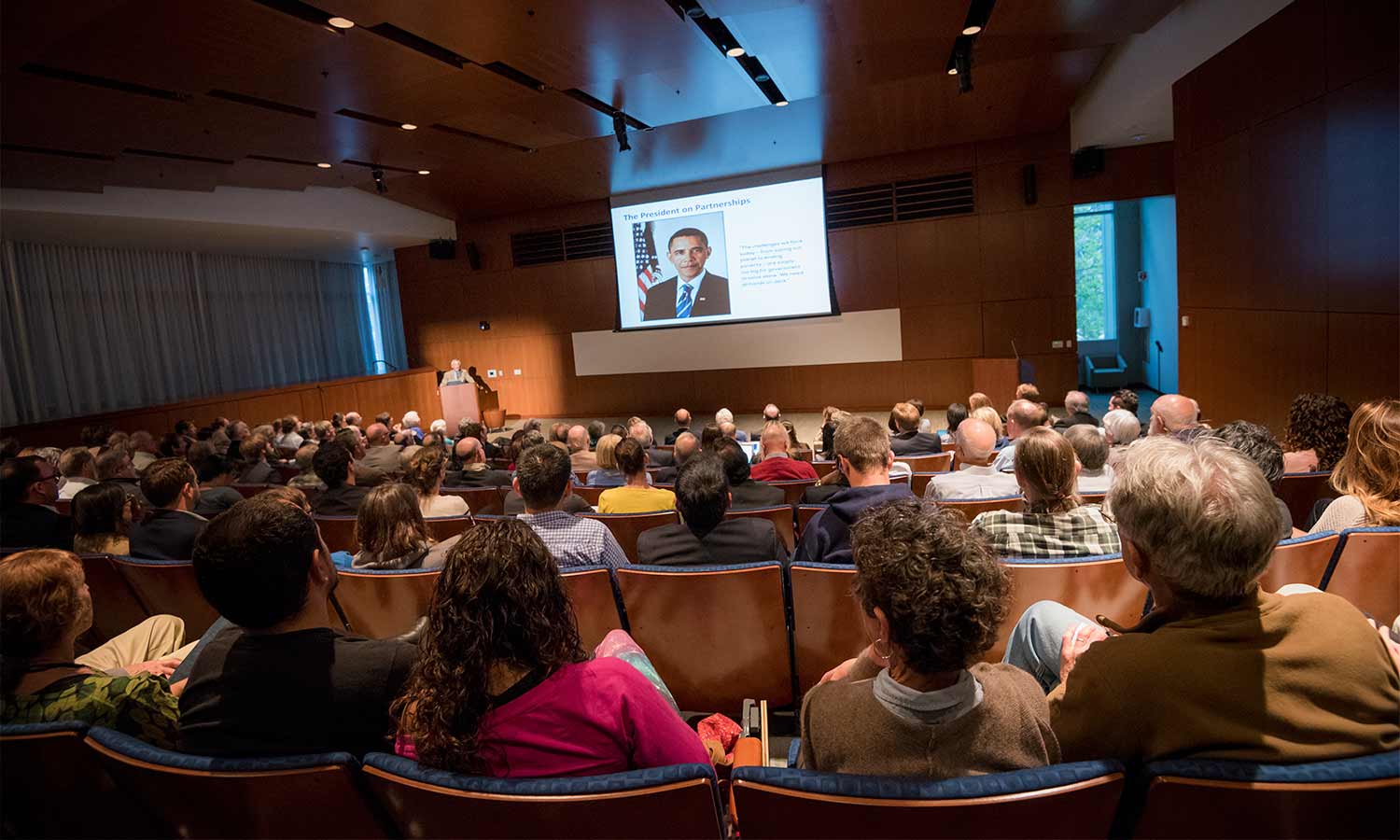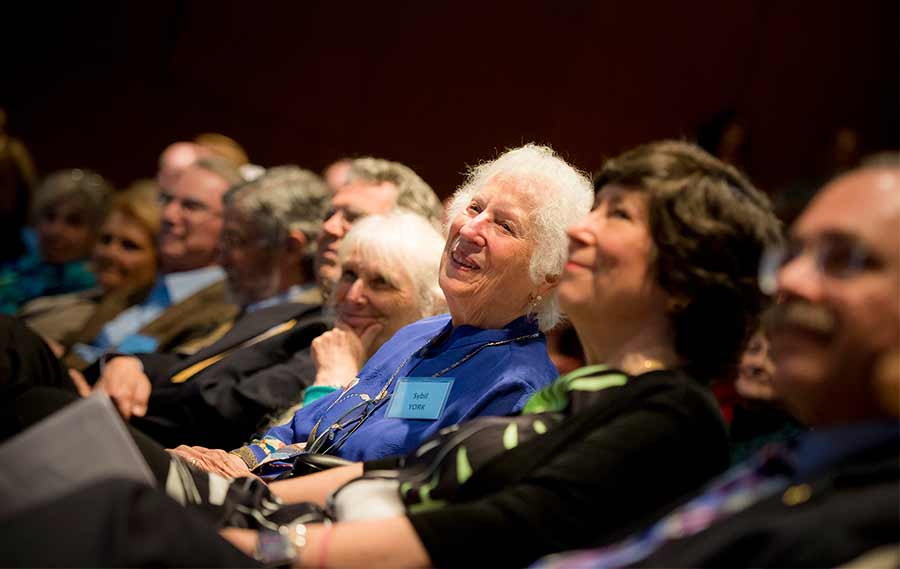By:
- Anthony King
Published Date
By:
- Anthony King
Share This:

Photos by Erik Jepsen/UC San Diego Publications
White House Advisor Promotes Science, Technology During Campus Visit
Director John Holdren gives fifth annual Herb York Memorial Lecture
John Holdren, President Barack Obama’s senior science and technology advisor, spent the day at UC San Diego Monday meeting with faculty members and giving a public talk about efforts to promote science and engineering at the national level. As director of the Office of Science and Technology Policy, Holdren oversees large-scale initiatives for the United States that include a comprehensive climate action plan, increasing participation of youth in STEM education and greater overall access to government-held data.
“The president has talked more about science, technology, engineering and mathematics than any prior president [and] he’s used the White House to celebrate science and engineering for the public good in extraordinary ways,” Holdren said. “We know that science and technology are not just necessary; they are absolutely central to meeting most of the major challenges that we face.”

John Holdren
Holdren was invited to campus to give the fifth annual Herb York Memorial Lecture, a keynote event for the UC Institute on Global Conflict and Cooperation (IGCC). A multi-campus research unit housed at UC San Diego, IGCC brings scholars together across social-science and lab-science disciplines to work on regional security, innovation and national security, development and political violence, emerging threats, and climate change. The School of Global Policy and Strategy and Jacobs School of Engineering co-sponsored Holdren’s visit.
“John Holdren has a portfolio that covers some of the most daunting challenges for a policymaker at the White House today: how to ensure the U.S. remains at the top of its game in technological innovation, tackling the causes of climate change and getting all of this done in today’s political climate,” IGCC Director Tai Ming Cheung said.
In his public talk, Holdren described in detail the many ways his office has developed under the current administration, including President Obama tripling the number of staff members to 135. The reason, he said, was for the president’s focus on technology and innovation, including “inspiring, supporting and mentoring” underrepresented students, girls and young women for success in STEM.
When scientists speak, the president more often than not listens, Holdren said. Currently, the President’s Council of Advisors on Science and Technology (PCAST), which Holdren co-chairs, has produced 30 reports for the president’s office, far more than any previous council, Holdren said. “The interesting thing, really, is not how many reports PCAST has produced, but how many of the recommendations the president has actually embraced.”

Sybil York (center) and Rachel York (right) at the fifth annual Herb York Memorial Lecture.
Obama’s Climate Action Plan released in 2013 was heavily shaped by information provided by Holdren’s office, including the basic science behind climate change and the technology that is available today to combat these effects. “Those key understandings, from science and engineering, provided the motivation behind the Climate Action Plan [and] the motivation to develop a cost-effective plan to reduce the impacts,” he said.
Before giving the standing-room-only lecture, Holdren received a briefing from scientists at Scripps Institution of Oceanography, who discussed topics ranging from ocean heat content to the increasing acidification of the seas as they take up excess carbon dioxide from the atmosphere. Holdren was in agreement with a sentiment expressed by most of the researchers that more robust observation of the oceans is needed to better understand phenomena and trends that science has only recently begun to identify. Holdren said a priority of his was to work at national and international levels to increase the density of ocean-observing networks.
The Herb York Memorial Lecture is underwritten by the York family to honor the contribution and legacy of Herbert F. York, the founding chancellor of UC San Diego in 1961 and first director of IGCC. York, too, served as a presidential advisor, beginning with Dwight D. Eisenhower shortly after Russia’s Sputnik launch in 1957, and ending with the appointment by Jimmy Carter to serve as ambassador to the Comprehensive Test Ban negotiations from 1979 to 1981. York died May 19, 2009 at the age of 87.
“The commitment to the intersection between public policy and the changes in science and technology that drive our world … were at the core of the passion of Herb York,” said School of Global Policy and Strategy Dean Peter Cowhey. Cowhey, who first interacted with Holdren as a graduate student, now contributes to the Office of Science Technology Policy’s U.S.-China Innovation Dialogue.
“That passion has evolved in the School of Global Policy and Strategy as a commitment to the idea that the school should be an epicenter at UC San Diego for work involving international and comparative issues of science and technology policy,” Cowhey said. “We’ve been the long-term home for IGCC in the UC system, and it is a source of real pride for all of us that the institute has found its home with us.”
Share This:
You May Also Like
Stay in the Know
Keep up with all the latest from UC San Diego. Subscribe to the newsletter today.



